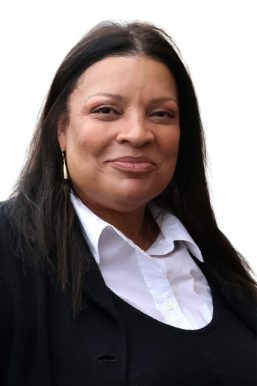RICHMOND, Va. — Lawmakers were split over a House bill to guarantee a state minimum wage for thousands of Virginia farm and migrant workers, with debate around the housing costs often included in the wage.
Del. Adele McClure, D-Arlington, introduced House Bill 157, which passed the House last month on a party line vote. The measure would ensure minimum wage pay for farm and migrant workers, which is currently $12 an hour and could increase even more if other legislation passes this session.
Del. Phil Hernandez, D-Norfolk, is now a chief co-patron after his HB 866 was incorporated into McClure’s proposal.
Over 100 members of CASA, a state and national immigrant and Latino advocacy organization, attended the committee meeting for the bills. Over a dozen individuals testified for the measure on behalf of organizations such as the Commonwealth Institute, Agricultural Workers Advocacy Coalition and the NAACP.
The average Virginia farmworker earned wage in May 2022 was $14.81, according to Kyle Shreve of the Virginia Farm Bureau Federation. Shreve testified before the House panel and cited federal labor statistics.
Employers are required by federal law to pay a minimum hourly wage rate of $15.81 to state H-2A visa workers. But not all farms pay the average rate, according to McClure. The H-2A program allows migrants to work agricultural jobs.
“This bill simply addresses the outliers who are paying these workers very low wages and expecting very high output,” McClure told House members ahead of the floor vote.
There are loopholes to the federal Fair Labor Standards Act that exempt some agricultural workers from receiving an hourly minimum wage of $7.25. Farmers who required less than 500 “man days” of labor in the previous year are exempt paying the federal minimum wage. A “man day” is anything over one hour of work. Livestock range workers are also FLSA exempt.
All farm workers are exempt from federal overtime pay, leaving the issue at the discretion of state laws, according to the U.S. Department of Labor.
“The bill is an opportunity to prove the state values and supports migrant workers, and they should not be left behind for another year,” McClure said.
Del. Michael Webert, R-Fauquier, was one of the 49 Republicans who voted against the bill. Webert, in committee, spoke to his years of experience in agriculture since he took over his family farm in 2007 and transitioned it to a livestock operation in 2021.
Webert expressed concern for Virginia farmers’ bottom lines if higher wage regulations took effect.
“We are losing our agricultural industry at an alarming rate,” Webert said.
Webert pointed out during the committee meeting that housing costs are factored into wages. Many farm operations provide added benefits for migrant workers “over and above” the required pay, Webert said.
“What we’ve had across industries, we’re going to mechanize and with the advance of A.I., all these people that were asking for minimum wage are going to lose their jobs,” Webert said before casting his vote.
Provided housing conditions often poor, advocates say
Migrant workers are not just concerned over fair wages, but also some substandard housing issues, according to Christianne Queiroz, director of the Virginia Farmworkers Program, which is part of the Central Virginia Legal Aid Society.
There are structural problems including holes in the ground, roof and screens which allow pests into the buildings, stated Queiroz in an email. Farmworkers report housing appliances that malfunction, such as refrigerators not keeping food cold enough or stoves without some working burners. Workers also report the presence of mold in bathrooms.
“Keep in mind that all these are common complaints for folks living in substandard housing which affect their health and safety,” Queiroz stated.
Workers can be assigned a bedroom the size of a storage unit, according to the H-2A federal labor rules employers are provided. The rules require “at least 50 square feet per person” with ceilings at least 7 feet high. Other regulations include one shower head per 10 people and one drinking fountain for every 100 people.
The temperature must be at least 70 degrees during cold weather, according to the federal guidelines. But there are no regulations on air conditioning during hot weather. That could be a growing health concern with rising summer temperatures in Virginia.
Manuel Gago, co-director of the Worker Justice Program at the Legal Aid Justice Center, has assisted migrant workers since joining the team as senior farmworker organizer in 2018. Gago has visited housing camps across the state and heard worker concerns firsthand.
“Here you see the correlation between housing rights, workers’ rights and climate change,” Gago said.
Many farms provide portable toilets for staff. Gago described situations where 13 workers use the same portable toilet in 100-degree weather, which is only cleaned once a week.
“In many cases, the standards, even the passed standards, are not livable conditions for any person that is serving in the General Assembly or is reading this article,” Gago said.
McClure’s bill moves to the Senate, where lawmakers will resume discussion after Crossover Day on Feb. 13.
Capital News Service is a program of Virginia Commonwealth University’s Robertson School of Media and Culture. Students in the program provide state government coverage for a variety of media outlets in Virginia.


